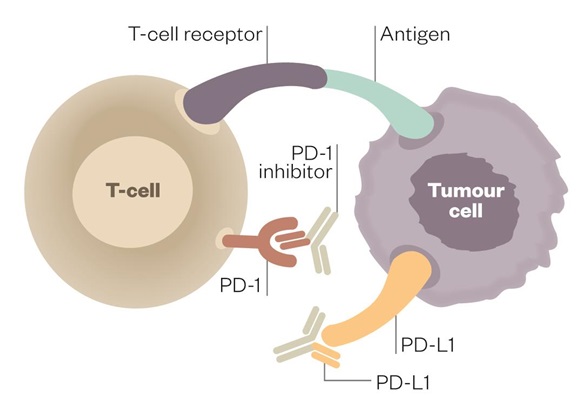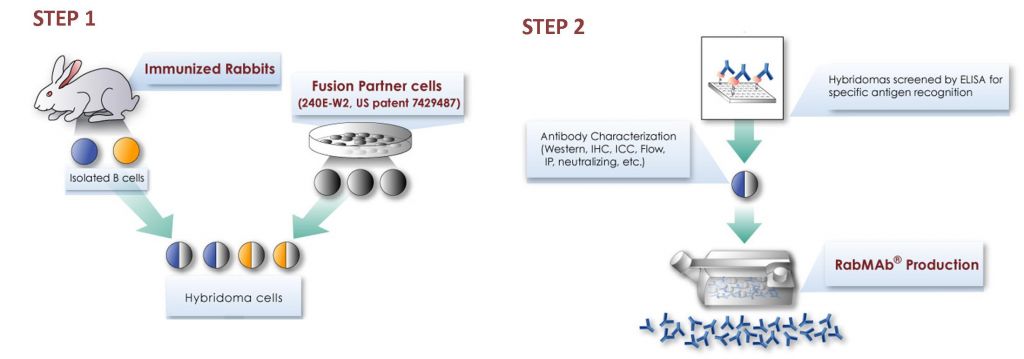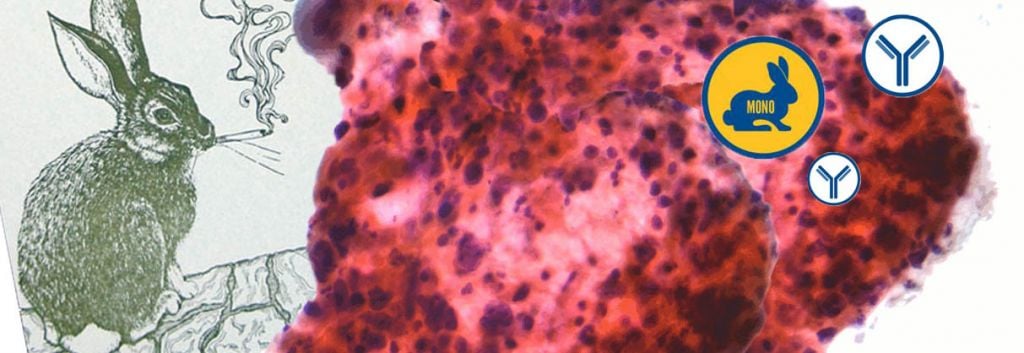Abcam is a Cambridge (UK) Biotech who have developed a monoclonal antibody (mAB) production platform from rabbits. This platform is developed for a much more specific immunohistochemical alternative to the traditional Rodent equivalents. Now the most recent generation of mAbs from this platoform is able to detect PD-L1 tumor proteins for immuno-oncology research.
 The conventional method of developing humanized monoclonal antibodies (mAbs) uses proprietary antibodies sourced from mice or rats. However, other mammalian sources have also been explored to great effect, from other rodents such as Chinese hamsters, to the more bizarre (e.g. Alpacas). Now rabbits have joined this mAb menagerie, used to target PD-L1 death receptors on tumor cells.
The conventional method of developing humanized monoclonal antibodies (mAbs) uses proprietary antibodies sourced from mice or rats. However, other mammalian sources have also been explored to great effect, from other rodents such as Chinese hamsters, to the more bizarre (e.g. Alpacas). Now rabbits have joined this mAb menagerie, used to target PD-L1 death receptors on tumor cells.

Program-Death ligand 1 (PD-L1) is already a common target for mAbs in immuno-oncology. If expressed on the tumor cells, this enables the cancer to form ligands with PD-1 receptors on T-cells, therefore inhibiting their proliferation (and ‘attack mode’). Engineering mAbs to block these PD-L1 receptors on cancer cells therefore disables this tumor cell self-masking mechanism.
This has proven to be an effective target area for immunooncology, particularly in the case of Keytruda (the anti-PD-1 drug pembrolizumab). This FDA approved drug has been licensed by MSD (Merck & Co.) for treatment of non-small cell lung cancer (NSCLC). Another biotech, Genentech (a member of the Roche group), has a strong PD-L1 focused pipeline, with varied candidates also targeting NSCLC.
Abcam have now developed a Knock-out validated study for their RabMAbs to detect PD-L1 receptors in immuno-oncology research. They argue the Rabbit based mAbs are more selective than their murine counterparts, able to clearly distinguish between PD-L1 and the similar PD-L2 receptors down to the picomolar level.

Being able to do this means immuno-histochemical staining techniques for tissue samples are much clearer (improving reliability of results). This was demonstrated in the case of non small cell lung cancer (NSCLC) published last month in Applied Immunohistochemistry & Molecular Morphology.
Thus, these RabMAbs could be the next lucrative addition to this leading manufacturer of monoclonal antibodies for the industry.
Jonathan Milner founded Abcam in 1998, and since then this Cambridge biotech has amassed a whopping €1.6Bn value on the London Stock Market. It was announced earlier this month that Abcam has entered into a partnership with Milner’s other Cambridge biotech Horizon, to use their cell-line expertise to drive even further discoveries in novel mAbs.
We visited Abcam on our Labiotech tour of the UK earlier this year…





